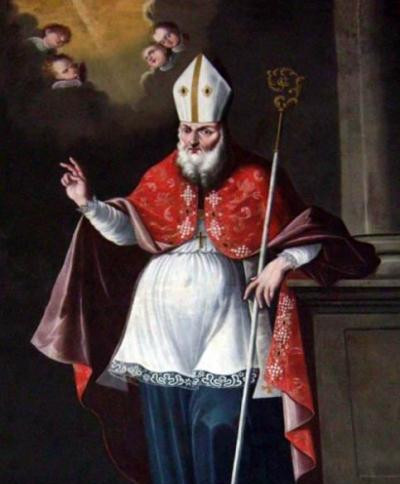
Saint of the Day December 01: St. Eligius
St. Eligius: Life, Legacy and Influence of the Patron Saint of Goldsmiths and Farriers
Name
St. Eligius
Title
Bishop
Birth
588, Chàtelat, France
Death
December 01, 660, Noyon, France
Recurrence
01 December
Prayer
O glorious trier of the devil, indefatigably armed in multiform ways against You, St. Eligius Bishop, continue Your victorious work over hell, conspired against us. From those baleful blows save our souls, fortifying them in spiritual battles: to our bodies impart constant holiness: Dilute from herds and fields every evil influence: and let the present life, your mercy tranquil for us, be wise and appliance to the perfect peace of eternal life.
Protector of
Blacksmiths, garages, jewelers, farriers, goldsmiths, veterinarians
Roman Martyrology
In Noyon, Bélgio, St. Eligius Bishop, whose wonderful life is glorified by a great number of miracles.
The Saint and Mission
St. Eligius, also known as St. Eloi, is a historical figure in the Church who uniquely exemplifies the concept of Christian mission. Born in 7th-century France, St. Eligius initially distinguished himself as a gifted goldsmith, but his life took a significant turn when he decided to devote himself to the service of God and the community.
His mission began with his profession as a goldsmith, where he used his skills to honor God by creating reliquaries and other sacred objects. However, his true missionary impact manifested itself when he left his profession to become a priest and later a bishop. In these new functions, St. Eligius devoted himself passionately to serving the poor and spreading Christianity among the pagan populations of France at the time.
His mission was characterized by a deep commitment to promoting social justice and assisting the less fortunate. He was known for his generosity and spirit of charity, spending his time and resources to help the destitute, orphans and the sick. This approach reflected the heart of the Christian mission: love and service toward others, following the example of Jesus Christ.
In addition, St. Eligius was an effective evangelizer, bringing the message of the Gospel to those who did not know it. His ability to communicate the faith convincingly and compassionately left a lasting imprint on Christianity in Europe.
St. Eligius’ life provides a shining example of how Christian mission can be lived out in different ways. From his work as a goldsmith to his vocation as a priest and bishop, his life was a journey of constant service and love of God and neighbor, making him an inspiring model for all who seek to live an authentic and active life of faith.
The Saint and Mercy
St. Eligius, or St. Eloi, emerges as an emblematic figure in Church history, embodying the virtue of mercy in a profound and significant way. His life, which takes place in 7th-century France, is an example of how mercy can permeate and transform every aspect of human existence.
Before embracing religious life, St. Eligius distinguished himself as a skilled goldsmith, known for his artistry and dedication. However, beyond his professional skills, what makes him a prominent figure in Christian history is his decision to use his skills and resources in the service of others. He devoted himself fervently to assisting the poor and supporting the needy, showing a strong inclination toward acts of mercy and charity.
After his priestly ordination and subsequent consecration as bishop, St. Eligius further expanded his commitment to the practice of mercy. He devoted himself zealously to the conversion of the pagans, not only with words of conviction but also through acts of kindness and compassion. His evangelization was imbued with a deep understanding of humanity and a sincere desire to see the spiritual transformation of people.
Mercy, for St. Eligius, was not an abstract concept but a daily lived reality. His life is an example of how mercy can be embodied in every action, from caring for the poor and marginalized to spreading the faith with kindness and understanding. He shows that true mercy goes beyond mere piety; it is an active commitment to respond to people’s physical, spiritual and emotional needs.
St. Eligius teaches us that mercy is a fundamental component of the Christian life. His legacy invites us to reflect on how we, too, can be instruments of mercy in our world, following his example of loving service, generosity and compassion toward all.
Hagiography
He was one of the main saints who illustrated France in the sixth century. He was born in Chàtelat the year 588. Showing as a child great aptitude for chiseling work, he was put to work by a certain Albone, a goldsmith. Engaging himself with ingenuity and care, he quickly gained great esteem.
Having once had some books of Holy Scripture in his hands, he fell so much in love with them that when he had some free time he devoted it to reading the holy books. Later he became acquainted with the treasurer of King Clotarius II who commissioned him to make a royal seat, giving him the gilded metal himself.
Eligius, with the material he had, built two beautiful thrones and…
